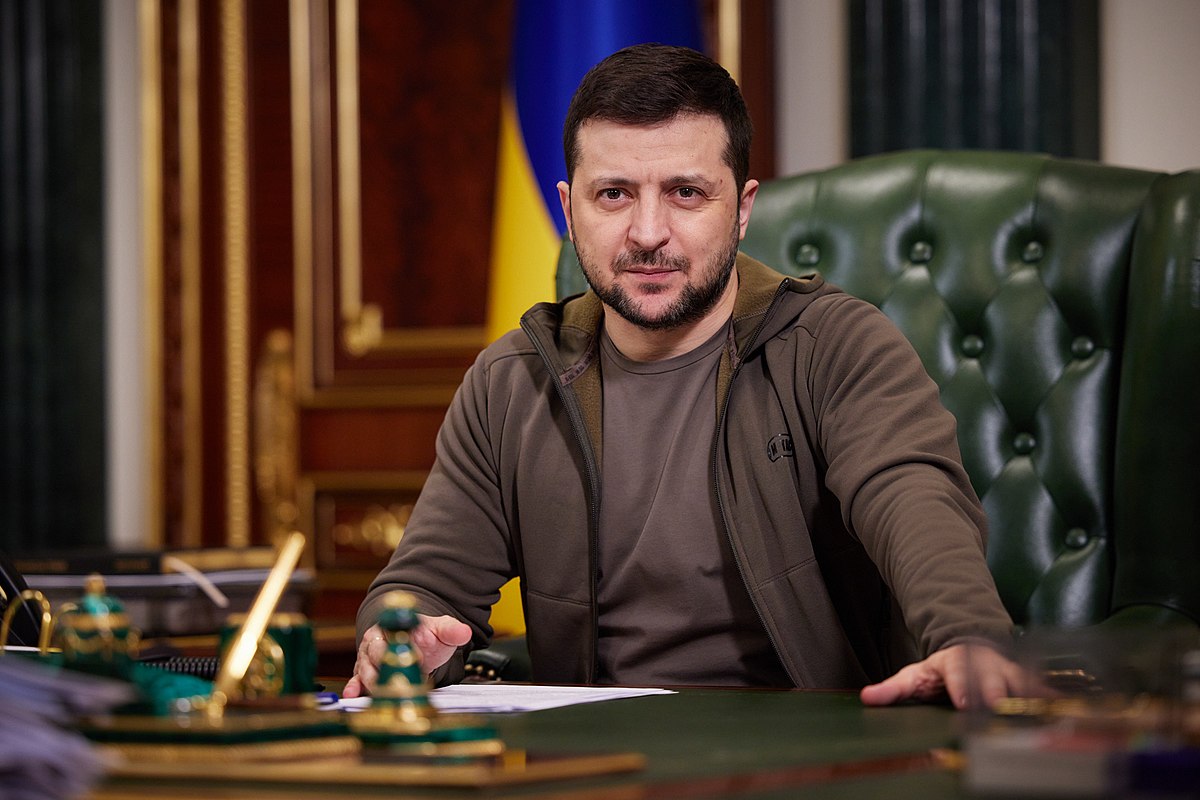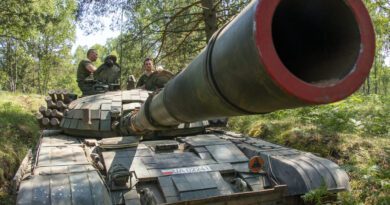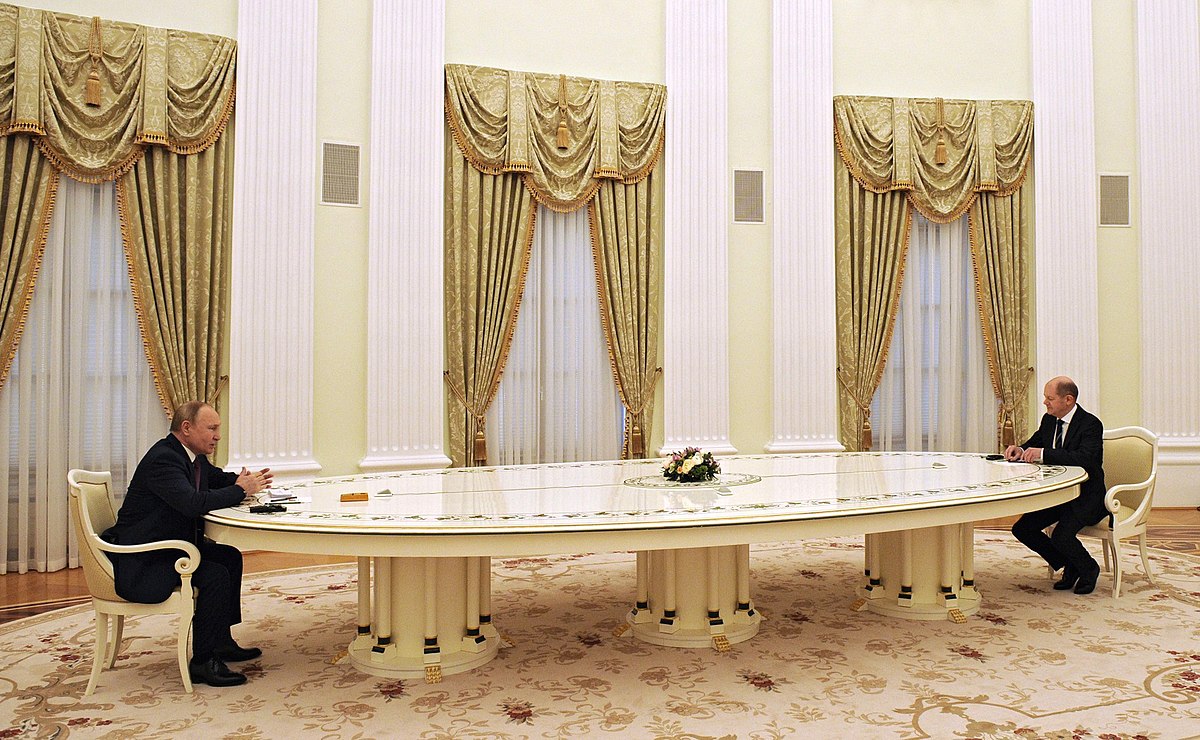How much support does Zelensky have in Ukraine?

Zelensky has pacified the oligarchs, censored television, and made the opposition afraid of elections, which it would have no chance of winning right now in open competition. The Ukrainian president continues to lead in the polls. However, when the war is over, he will face a time of political reckoning for his many mistakes and the things he hasn’t done.
Maciej Pieczyński
According to the electoral calendar, Ukrainians should elect a new parliament this fall and a president next March. This is what would be happening if it was not for the Russian invasion. Under Ukrainian law, however, elections cannot be held during martial law. This is prohibited by a 2015 law. According to many commentators, it would also be unconstitutional, and the constitution cannot be amended or changed in wartime.
Ukraine’s constitution does not explicitly prohibit the holding of elections under current conditions, however, and such a prohibition only derives indirectly from its provisions. “In the event that the term of office of the Supreme Council [the Verkhovna Rada, Ukraine’s parliament, ed.] ends during a period of martial law or state of emergency, the term of office shall be extended until the first meeting of the Council elected after the lifting of martial law or emergency,” the constitution states. When it comes to the presidential election, even such a veiled ban is absent.
Parliamentary speaker Ruslan Stefanchuk said in late July that the constitution does not prohibit the holding of elections during wartime. Yet this statement caused quite an outcry in Ukraine. In several media outlets that are not necessarily pro-government, it was criticized not only by opposition politicians, but also by lawyers.
Unsurprisingly, opponents of the current government are not enthusiastic about the idea of holding elections in the current situation. Even if such elections were legal, they would not be fair. Under the conditions of a Russian invasion, the “rally-around-the-flag effect” would do its natural work: faced with the Russian threat, society will tend to support the current government, which has the tools to ensure security. But, first of all, the race for parliament and the presidency would be unfair because of unequal access to the media.
Zelensky’s team has essentially monopolized the television narrative. The largest stations, as part of the so-called Telemarathon, broadcast the same patriotic and pro-government content several hours a day in shifts. Admittedly, there is no harsh criticism of the opposition in news and current affairs programs. However, it can be said that the Telemarathon has become one big propaganda channel for the Ukrainian government.
Three TV channels were shut down in April 2022, two of which belong to Petro Poroshenko, while the third belongs to a politician from European Solidarity, Poroshenko’s party. These channels can now only be viewed on the Internet,
a place where the opposition’s narrative is left unfettered. Major websites are lending their pages to politicians and columnists associated with Poroshenko and other opponents of Zelensky. At the same time, criticism of the authorities is still not as harsh and intransigent as it was before the war broke out. After February 24, 2022, the Ukrainian political and media scene united across the existing divides. Initially, despite censorship on television or such mischief as obstructing Poroshenko’s trip to a meeting of the NATO Parliamentary Assembly in Vilnius, the opposition tended to criticize individual actions of the authorities and to direct their criticisms at specific people from the president’s team instead of the president himself. This began to change as the situation at the front stabilized and the threat of loss of independence diminished. Zelensky, too, was becoming the object of increasingly strident resentment.
Accusations against Ukraine’s current leaders
The list of accusations against the current ruling team is long. Some of the more serious ones are worthy of mention. Especially since for a long time they did not reach a Polish public dominated by the false belief that any criticism of Zelensky must be an action in support of Moscow. Still, in Ukraine, despite the war, there is a healthy, democratic public debate. True, it is limited by censorship, but those taking part in that debate nonetheless attack those in power from patriotic rather than pro-Russian positions.
A common reproach is that Zelensky’s “Servants of the People” failed to properly prepare for war. Zelensky ignored American warnings of the upcoming invasion. He announced neither mobilization nor evacuation in time (as he explained, he did not want to sow panic). The army was not properly armed, as evidenced by its permanent need for equipment support from Western allies. The Kherson region was quickly and easily surrendered. On one hand, it was not prepared to defend itself. But on the other hand, there were massive betrayals in Ukraine’s SBU security and counter-intelligence service, whose head, who incidentally was a longtime friend of Zelensky, had to be gotten rid of. A separate issue is Ukraine’s now traditional rampant corruption, which those in power have been trying to bring under control with varying degrees of success.
In recent months, even Zelensky’s effectiveness in dealing with the West has been called into question. The failure to win an invitation to join NATO has become a pretext for Poroshenko to strike back at his political rival, although in this case one could hardly expect a better outcome for Ukraine, and the disappointment was mainly due to the excessive expectations that had been unnecessarily aroused for the Vilnius summit. By contrast, the grain dispute with Poland is not controversial: here the opposition and Zelensky speak with one voice, demanding through Brussels and Berlin that Warsaw be disciplined.
Two very high-profile political decisions have recently been made in Ukraine. The first was the dismissal of Oleksii Reznikov from the post of defense minister. The second was the arrest of oligarch Ihor Kolomoyskyi. Reznikov is very popular in the West. No wonder: he is one of the best-known faces of Ukrainian resistance in the war against Russia. A perpetually smiling, affable politician, Reznikov was efficient in the field of diplomacy, but had lost his popularity in his home country a long time ago. And this had nothing to do with the fact that the Ukrainian army is almost at a standstill after all the boisterous talk about the upcoming spectacular counteroffensive. The real problem was that Reznikov had come to embody the authorities’ corruption and ineptitude. In January, it emerged that the defense ministry was buying food at inflated prices. This was best symbolized by eggs, for which the ministry was paying three times the price at which they were on sale in a regular grocery store on the outskirts of Kyiv. First it was Reznikov’s deputy who had to leave while his boss kept his job. But it was only a matter of time before Reznikov followed suit. This scandal came to light before important talks Reznikov was to hold with the Americans, and there was no one to replace him at the time anyway.
But another affair was revealed in the summer by Ukrainian Pravda journalist Mykhailo Tkach. According to Tkach’s findings, the defense ministry had bought summer uniforms instead of winter ones, and had paid an inflated price once again. Reznikov, as usual, reacted sharply to this “media attack.” He offered Tkach a bet: if it turned out that the uniforms were indeed designed for summertime, he would resign; otherwise it was the journalist who would leave his profession. Tkach did not accept the bet. To make things worse, however, the owner of the company from which the ministry bought the uniforms is the cousin of a Servant of the People MP, who in turn has ties to a former director of the Motor Sich plant, who is accused of state treason. This affair tipped the scales and Reznikov was eventually dismissed.
A rather soft landing awaits him, though. He is likely to become ambassador to the UK, where his good contacts with the West will come in handy. It is worth noting at this point that even the staunchest opponents of the current government did not accuse Reznikov of being involved in corruption himself, as there is no evidence of this. Rather, he was accused of ineptitude: he was unable to control his own ministry and fight corruption. Also, Reznikov’s resignation was made possible because a good candidate was finally found for the post. Even the opposition praises the appointment of Rustem Umierov to the job. As a Crimean Tatar and an activist for that minority, he has good contacts in Turkey and Arab countries, and he is living proof of the multi-ethnicity of Ukraine (i.e. its modernity, so important to the West). Umierov is known to be an efficient negotiator and manager. Under his leadership, the State Property Fund, which deals with privatization, recorded record profits. And first and foremost, Umierov has never been implicated in any corruption scandal, a rarity in Ukraine.
Pressure from the West
Kolomoyskyi’s arrest, on the other hand, brings several benefits to Zelensky. First, the president has once again shown that he has emancipated himself from the influence of his former political patron. Secondly, he is pursuing (albeit in a superficial and populist way) his flagship promise to fight the oligarchy, which incidentally has been severely weakened by the war anyway (not only because of war damage and the deterioration of business conditions, but also because of the nationalization of some companies). Third, Kolomoyskyi did not flee abroad, but did not support the state’s war efforts either, so he is an easy and media-friendly target.
This, by the way, could also be perceived as creeping political corruption: the authorities are making it clear that they will go after the oligarchs who do not give them money (that the money would be for a good cause is another matter). Those who finance the war can rest easy for now.
Fourth, Kolomoyskyi is under U.S. sanctions over corruption allegations. A visit by Zelensky to the United States is planned for late September. According to some commentators, it is no coincidence that Reznikov has just now lost his job and Kolomoyskyi is behind bars. Zelensky wants to show Western allies that he is fighting corruption, so that he can negotiate increased support for Kyiv. In addition, both decisions also target Zelensky’s internal market. Ukrainians too need to see that their government is dealing with oligarchs and corrupt officials.
Who would win the elections?
It is very possible that parliamentary elections in Ukraine will not be held this fall. Martial law is being continually extended with the support of the opposition. Despite dissatisfaction with the current team’s rule, its opponents are afraid to enter the race. According to a poll released in early July, the election would be won by Servant of the People with 51.4 percent of the vote. European Solidarity could count on just over 14 percent. Yulia Tymoshenko’s All-Ukrainian Union “Fatherland” (Batkivshchyna) would get 3.3 percent, and 4.1 percent of the vote would go to the nationalist All-Ukrainian Union “Freedom” party, or Svoboda. The survey also shows the strength of new players. The August 24 Prytula Party founded by popular volunteer Serhiy Prytula polled second, with 18.1 percent of voting intentions. In the future, it is Prytula who might effectively challenge Zelensky. Like the incumbent president, he has made a career in show business. He was a television presenter, actor and comedian. In 2019, he joined the Voice party, which he left after two years. He criticized Zelensky for not doing enough to integrate Ukraine with the EU and NATO. He then founded his own party last year. After the outbreak of full-scale war, he stopped criticizing the incumbent president and took to organizing collections to get equipment for the army. Surveys show that a party founded by people from the military, under the aegis of Valerii Zaluzhnyi, Oleksandr Syrsky or the Azov regiment, would also have a good chance. Unless, of course, before the end of the war, the army loses authority as a result of failures at the front.
The West is openly pushing Kyiv to hold elections despite the war and prove that democracy still prevails in Ukraine. Zelensky has responded with a condition: for this to happen, the elections have to be financed by Ukraine’s Western partners. Not only the opposition, but also the president himself is unenthusiastic about organizing the vote. It is hard to imagine voting while bombs are falling. The authorities have been loudly considering online elections, but this raises concerns about possible election rigging.
Zelensky still remains by far the most popular politician in the country. In a poll published on August 10, he was credited with 51 percent of voting intentions, far ahead of Poroshenko’s 7 percent. The opposition leader is less popular than his party is. Serhiy Prytula and former advisor to the head of the presidential office Oleksii Arestovych would get 2 percent each. In this poll, second place went to a virtual candidate. If the Commander-in-Chief of the Armed Forces of Ukraine, general Valerii Zaluzhnyi, ran for election, he would win 18 percent of the vote. After the war, the Ukrainian political scene will clearly face a major reshuffle. Currently functioning parties may be supplanted by parties founded by former military officers and volunteers.
Zelensky has already announced that if presidential elections are held during the war, he will run, as he does not want to “leave his country in need.” It is worth recalling that in 2019, he promised not to run for another term. Presently, he would be the favorite in the presidential race. Commenting on Zelensky’s declaration, opposition journalist Maryna Danyluk-Yarmolayenko said ironically that a year and a half after the outbreak of the war, Ukrainians are no longer satisfied just with the fact that their president heroically refused to flee the country in the first days of the invasion. As soon as the guns fall silent, when martial law is lifted, unity across divides is no longer a priority, and normal, unfettered public debate returns to Ukraine, Zelensky will have to answer for his team’s many omissions and failures.
This article was published in Polish in the Do Rzeczy weekly in September 2023.



